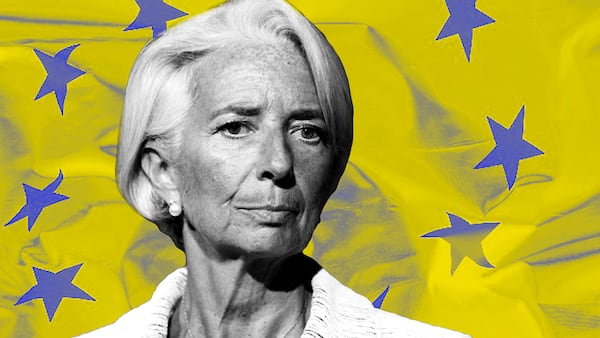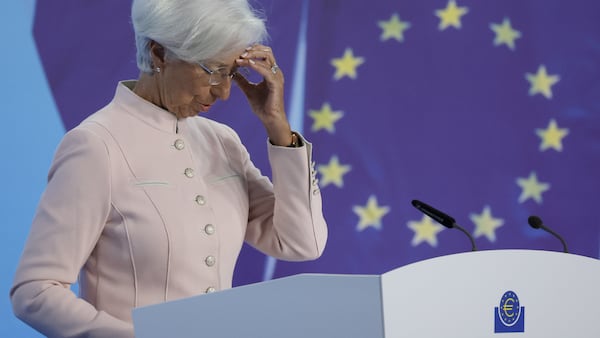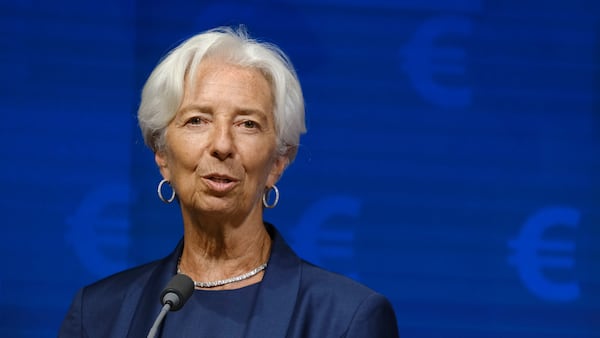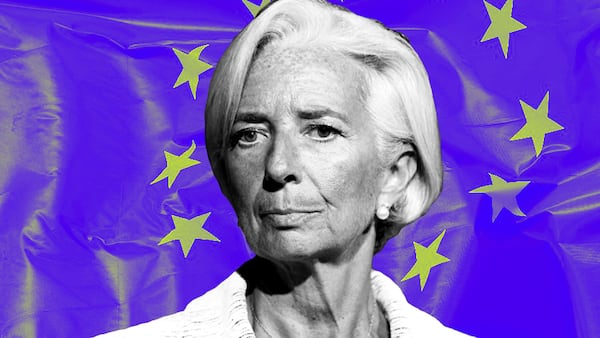- One lawmaker suggested scratching the whole digital euro proposal, according to amendments to the digital euro bill from lawmakers.
- Some lawmakers think the digital euro would be more valuable if built on blockchain.
- The European Central Bank is experimenting with distributed ledgers.
Some lawmakers in the European Parliament want to scrap a bill on the digital euro.
And others are betting that the widely criticised project will become more relevant if it’s powered by distributed ledger technology.
Right-wing Dutch lawmaker Michiel Hoogeveen proposed an amendment to scrap the legislation, according to amendments parliamentarians submitted on the digital euro bill.
“I seriously still doubt whether there is any added value for digital euro in the market today,” Hoogeveen, who has been a vocal critic, said in a recent European Parliament meeting with a European Central Bank executive.
Still, Hoogeveen also submitted amendments proposing the ECB adopt blockchain for the digital euro’s infrastructure.
“To be truly innovative and bring value to European businesses and consumers, the digital euro could be built on blockchain,” Hoogeveen wrote in an amendment.
He added in an additional amendment that using blockchain would serve fintechs and startups, which could help spark innovation.
Europe’s Frankfurt-based central bank has boosted its digital euro project, and it is currently seeking private partners to develop the digital euro with contracts totalling over a billion euros.
These are on hold until legislation is completed.
Lawmakers like Hoogeveen have struggled to understand the value of a retail central bank digital currency, given that digital payments already function effectively.
Betting on blockchain
Still, digital euro proponents argue that it will help Europe regain sovereignty over payments, which are currently dominated by foreign companies, including Visa and Mastercard.
What the digitised version of cash will have to offer is now in the hands of lawmakers negotiating its legal guardrails.
The Parliament’s committee for economic affairs has just a few weeks to complete its work on the digital euro legislation, with a vote scheduled for April 8.
The European Parliament may be betting on blockchain for solutions to conditional payments, “where smart contracts could trigger payments in the digital euro,” said Jonas Gross, chair of the Digital Euro Association and COO of etonec, a crypto payments platform.
“These use cases are highly relevant for the industry to leverage benefits of DLT such as composability, automation, and enable novel use cases,” Gross told DL News.
Tokenisation
Other parliamentarians submitted amendments in a similar vein, pushing for a DLT-based digital euro, according to the draft report dated 21 February.
Markus Ferber, a German centre-right lawmaker, proposed that two years after the legislation goes live, the European Commission would need to assess and report on “the possibility for tokenisation of the digital euro and its usability for distributed ledger applications.”
Alfred Sant, a left-wing lawmaker from Malta, added an amendment calling on the ECB to consider adopting “standards” that would allow the digital euro to be “referenced” on distributed ledgers.
Parliament’s innovation push
The member of the European Parliament appointed to lead digital euro negotiations has already amended the bill.
That’s Stefan Berger, a German, centre-right MEP who also led negotiations on Europe’s landmark Markets in Crypto-Assets regulation.
In his report published in early February, he added an amendment saying that “conditional payments in [digital euros] may also be carried out on permissionless distributed ledgers.”
Berger added that until now, these kinds of ledgers are only used in payments by privately issued crypto assets.
If the ECB approves, the digital euro would then be available on public blockchains.
Gross said: “One way to provide such a solution is to issue the digital euro on permissionless DLT such as Ethereum. So, where today stablecoins like [Circle’s] USDC or [Tether’s] USDT are present, in the future there could also be a digital euro token.”
The original proposal for the digital euro drafted by the European Commission, published in June, made little mention of DLT.
It said only that the digital euro settlement infrastructure should be adaptable to new tech, “including distributed ledger technology.”
‘Hesitant’ central bank
“To date, the ECB was hesitant to issue central bank money on a permissionless DLT,” Gross said.
This became clear in the work on wholesale CBCD, he added.
It will be interesting to see how the Parliament’s push towards innovation will be accepted as negotiations among European lawmakers continue, he added.
The ECB said in an FAQ updated earlier in February that it is “experimenting” with distributed ledger technologies for the digital euro, but has not made a decision.
Have a tip about CBDCs? Contact the author at inbar@dlnews.com.








